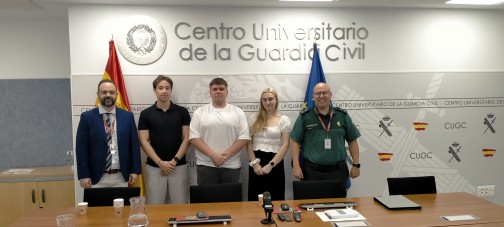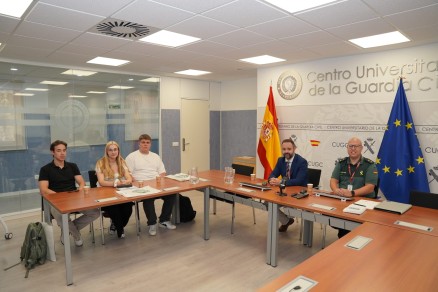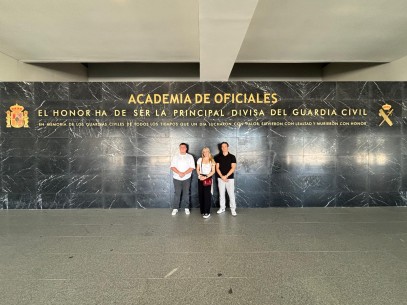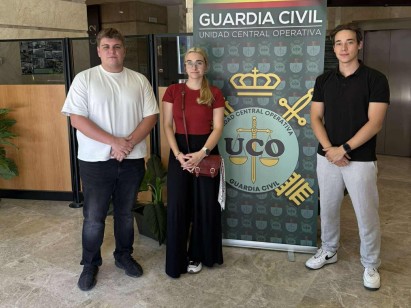As part of an international project carried out by our academy, a group of students had the unique opportunity to participate in a professional exchange program in Spain. The aim of the visit was to become familiar with the structure, organization, and scope of activities of the Guardia Civil and selected specialized units, as well as to gain insight into the practical aspects of the functioning of the Spanish security system.
On the first day, participants visited the Centro Universitario de la Guardia Civil in Madrid, where they were introduced to the structure and operation of the Spanish policing system and the organization of the Guardia Civil. The students were given a tour of the university and academy, with an opportunity to visit, among other places, conference rooms and the parade ground, which helped them better understand the process of educating and training officers.
The second day of the program included a visit to the Dirección General de la Guardia Civil – Servicio de Criminalística (SeCRim). During meetings with experts, issues related to forensic science were presented, including ballistics, fingerprint analysis, and crimes against the environment. Particular attention was given to the problem of firearms manufactured using 3D printing technology, which poses a significant challenge for modern security services.
On the third day, participants went to the Unidad Central Operativa (UCO), where representatives from various departments discussed their areas of activity, such as combating drug-related crime, money laundering, economic crime, corruption, and cybercrime. The students also learned about the tasks of departments dealing with crimes against persons and property, operational planning, and operational techniques. An additional highlight of the day was a visit to the GATO (Grupo de Acción Rápida) unit – an elite operational group dedicated to counterterrorism and rapid crisis response.
The fourth day included a visit to the Jefatura de Información (JINFO), a unit responsible for intelligence operations. The participants learned about the work of departments focused on combating terrorism and crimes motivated by hate speech and discrimination. They also discussed issues related to extremism in Spain and other forms of crime rooted in discrimination.
On the final day, the students visited the Unidad Técnica de Policía Judicial (UTPJ), where they explored topics related to the functioning of the Spanish judicial system, victimization, interrogation techniques, and social engineering methods used by offenders. Particular emphasis was placed on mechanisms of international police cooperation, including the collaboration of the Guardia Civil with Europol, Interpol, and Frontex. At the end of the visit, participants were presented with certificates confirming their participation in the international exchange.
The implementation of this project allowed students not only to gain valuable theoretical and practical knowledge about the activities of Spanish security services but also to develop a deeper understanding of the importance of international police cooperation in jointly combating crime and ensuring public safety.






